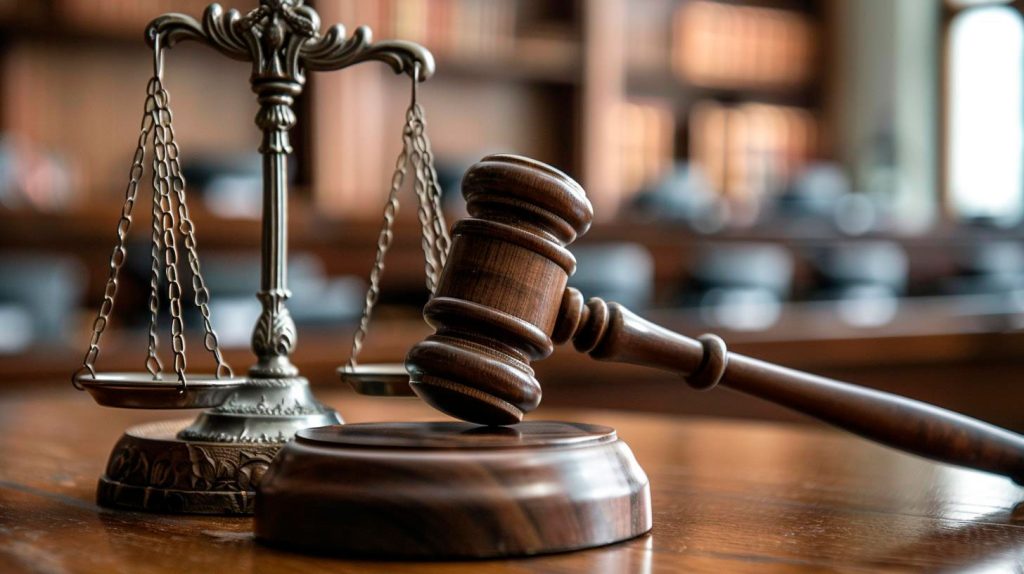
Navigating the Legal Process: Steps to Take for Credit Repair
If you’re facing credit issues and looking to repair your credit, it’s essential to understand the legal process involved and the steps you can take to improve your credit score.
Understanding Your Credit Score
Before delving into the legal process of credit repair, it’s crucial to understand your credit score. Your credit score is a numerical representation of your creditworthiness based on factors such as your payment history, credit utilization, length of credit history, new credit accounts, and types of credit used. The most commonly used credit scoring model is the FICO score, which ranges from 300 to 850. A higher credit score signifies lower credit risk and better borrowing terms.
Steps to Take for Credit Repair
1. Obtain a Copy of Your Credit Report
The first step in repairing your credit is to obtain a copy of your credit report from each of the three major credit bureaus: Equifax, Experian, and TransUnion. You are entitled to one free credit report every 12 months from each credit bureau through AnnualCreditReport.com. Review your credit reports carefully for any errors, inaccuracies, or fraudulent activity that may be negatively impacting your credit score.
2. Dispute Inaccurate Information
If you identify any errors on your credit report, you have the right to dispute them with the credit bureaus. The Fair Credit Reporting Act (FCRA) gives consumers the right to dispute inaccurate information on their credit reports. You can submit a dispute online, by mail, or over the phone. The credit bureaus are required to investigate your dispute within 30 days and correct any inaccuracies.
3. Negotiate with Creditors
If you have accounts in collections or past due payments, consider negotiating with your creditors to settle the debts. You may be able to negotiate a payment plan, a reduced settlement amount, or a pay-for-delete agreement where the creditor agrees to remove the negative information from your credit report in exchange for payment. Get any agreements in writing to protect yourself legally.
4. Establish Good Credit Habits
To improve your credit score in the long term, focus on establishing good credit habits. Make all of your payments on time, keep your credit card balances low, avoid opening new credit accounts unnecessarily, and regularly monitor your credit report for any changes. Building a positive credit history takes time, but it’s worth the effort in the long run.
5. Seek Legal Assistance
If you’re struggling to navigate the legal process of credit repair on your own, consider seeking assistance from a reputable law firm specializing in credit repair services. A knowledgeable attorney can help you understand your rights under the law, negotiate with creditors on your behalf, and ensure that your credit repair efforts comply with all applicable legal regulations.
Legal Protection and Rights
Under the Fair Credit Reporting Act (FCRA), consumers have certain rights and protections when it comes to their credit reports. The FCRA requires credit bureaus to provide accurate and complete information, investigate disputes in a timely manner, and remove inaccurate information from credit reports. Consumers also have the right to sue creditors or credit bureaus for violations of the FCRA and seek damages for any harm caused.
Industry Statistics on Credit Repair
According to a recent study, around 21% of consumers have verified errors on their credit reports that negatively impact their credit scores. Additionally, credit repair services have helped consumers increase their credit scores by an average of 40 points within the first four months of service. Seeking professional legal assistance for credit repair can lead to faster and more effective results in improving your credit score.
Overall, navigating the legal process of credit repair can be complex and overwhelming, but with the right steps and legal guidance, you can take control of your credit situation and work towards achieving a better financial future. Remember to stay informed, exercise your rights under the law, and take proactive steps to improve your credit score. Your creditworthiness is worth the effort.
The Role of Legal Support in Rebuilding Your Credit Score
Understanding Your Credit Score
Before delving into the role of legal support in rebuilding your credit score, it’s essential to understand what a credit score is and how it is calculated. Your credit score is a three-digit number that represents your creditworthiness to lenders. It is based on various factors, including your payment history, credit utilization, length of credit history, types of credit used, and new credit accounts.
According to recent statistics, the average FICO credit score in the United States is 711, with scores ranging from 300 to 850. A good credit score is typically considered to be 700 and above, while a score below 600 is considered poor. Improving your credit score can open up new financial opportunities and save you money in the long run.
The Role of Legal Support
Legal support can play a crucial role in helping you rebuild your credit score. Whether you are struggling with debt, dealing with errors on your credit report, or facing collections actions, a legal professional can provide you with the guidance and assistance you need to navigate the complex world of credit repair.
One of the primary ways that legal support can help is by negotiating with creditors on your behalf. A lawyer can work to settle your debts for less than what you owe, create payment plans that are manageable for you, and even help you dispute inaccuracies on your credit report. With the help of legal support, you can take proactive steps to improve your credit score and secure a better financial future.
Benefits of Legal Support
- Expertise: Legal professionals have a deep understanding of consumer protection laws, credit reporting regulations, and debt collection practices. They can use this knowledge to advocate for your rights and ensure that you are treated fairly by creditors.
- Personalized Solutions: A lawyer can assess your unique financial situation and develop a tailored strategy to address your credit issues. They can provide you with options that align with your goals and financial capabilities.
- Peace of Mind: By enlisting the help of a legal professional, you can relieve yourself of the stress and anxiety that often accompany financial problems. Knowing that you have an experienced advocate on your side can give you peace of mind as you work towards rebuilding your credit score.
Take Control of Your Financial Future
Rebuilding your credit score is a journey that requires dedication, persistence, and the right support system. By enlisting the help of legal professionals who specialize in credit repair, you can take control of your financial future and set yourself up for success. Don’t let past mistakes or financial setbacks hold you back – with the right legal support, you can pave the way to a brighter financial future.
Remember, your credit score is not set in stone. With the right strategies and legal support, you can work towards improving your creditworthiness and achieving your financial goals. Don’t hesitate to reach out to a legal professional for assistance in rebuilding your credit score and securing a better future for yourself and your loved ones.
Understanding Your Rights: Legal Protections for Credit Disputes
Fair Credit Reporting Act (FCRA)
One of the key pieces of legislation that protects consumers in credit disputes is the Fair Credit Reporting Act (FCRA). Enacted in 1970, the FCRA regulates the collection, dissemination, and use of consumer credit information. Under the FCRA, consumers have the right to dispute inaccurate information on their credit reports and have it corrected or removed.
According to a recent study by the Federal Trade Commission (FTC), one in five consumers had at least one error on their credit report. These errors can range from minor inaccuracies to major discrepancies that can negatively impact your credit score and financial well-being. By understanding your rights under the FCRA, you can take steps to correct any errors and protect your credit.
Steps to Take in a Credit Dispute
When disputing inaccurate information on your credit report, there are several steps you can take to protect your rights. First, you should review your credit report carefully and identify any errors or inaccuracies. Next, you should gather any supporting documentation that can help prove your case, such as bank statements, payment receipts, or correspondence with the creditor.
Once you have gathered your evidence, you can then file a dispute with the credit reporting agency (CRA) that issued the report. The CRA is required by law to investigate your dispute within 30 days and correct any errors that are found. If the CRA fails to take action, you may have the right to file a complaint with the Consumer Financial Protection Bureau (CFPB) or seek legal action against the CRA.
Benefits of Legal Representation
While it is possible to dispute credit errors on your own, many consumers find it beneficial to seek legal representation in more complex cases. An experienced attorney can help you navigate through the legal process, gather evidence, and advocate on your behalf with the CRA and creditors.
According to a study by the National Consumer Law Center, consumers who hired an attorney in credit disputes were more likely to have errors corrected on their credit reports compared to those who attempted to resolve the issue on their own. By seeking legal representation, you can ensure that your rights are protected and increase the likelihood of a favorable outcome in your credit dispute.
Understanding your rights in credit disputes is essential to protecting your financial well-being and ensuring the accuracy of your credit report. By familiarizing yourself with the laws and regulations that govern credit reporting, you can take proactive steps to correct any errors and safeguard your credit score.
Whether you choose to dispute credit errors on your own or seek legal representation, it’s important to be well-informed and proactive in defending your rights. Remember, you have the power to challenge inaccurate information on your credit report and take control of your financial future.
Finding Legal Assistance Resources for Individuals Facing Credit Challenges
Fortunately, there are numerous resources available to help individuals facing credit challenges find the legal support they need. From nonprofit organizations to legal aid services, there are options for individuals of all income levels to access the legal assistance they need.
Common Credit Challenges Faced by Individuals
Before diving into the resources available for legal assistance, it is important to understand the common credit challenges that individuals face. These challenges can range from debt collection lawsuits to credit report errors and financial distress due to bankruptcy.
According to a recent study by the Consumer Financial Protection Bureau, approximately 43 million Americans have overdue medical debt, while 1 in 4 consumers have errors on their credit reports. This highlights the prevalence of credit challenges faced by individuals across the country.
Benefits of Legal Assistance for Credit Challenges
Legal assistance can provide individuals facing credit challenges with numerous benefits, including:
- Expert advice on navigating complex legal processes
- Representation in court or during negotiations with creditors
- Protection of legal rights and interests
- Assistance with debt settlement negotiations
- Help with understanding and disputing credit report errors
By seeking legal assistance, individuals can have a better chance of resolving their credit challenges effectively and in a timely manner.
Resources for Legal Assistance
Nonprofit Organizations
Many nonprofit organizations offer free or low-cost legal assistance to individuals facing credit challenges. These organizations often have staff attorneys who specialize in consumer law and can provide valuable guidance and representation.
Legal Aid Services
Legal aid services provide free legal assistance to individuals who cannot afford to hire a private attorney. These services are funded by government grants and donations, and they can help individuals with a wide range of legal issues, including credit challenges.
Pro Bono Programs
Pro bono programs connect individuals with volunteer attorneys who are willing to provide free legal assistance. These programs are a valuable resource for individuals who are in need of legal representation but cannot afford to hire an attorney.
Finding legal assistance for individuals facing credit challenges is crucial for navigating the complex legal landscape of debt collection, bankruptcy, and credit disputes. By accessing resources such as nonprofit organizations, legal aid services, and pro bono programs, individuals can get the legal support they need to address their credit challenges effectively.
Remember, seeking legal assistance early on can help prevent further financial hardship and protect your legal rights. Don’t hesitate to reach out to legal resources in your area for help with your credit challenges.













Yo, has anyone ever dealt with a credit dispute before? I’m so lost on what to do.
I think I may have been a victim of identity theft, and it’s affecting my credit. Do lawyers help with that type of stuff?
I heard that there are lawyers who specialize in credit repair. Has anyone ever used one of them?
The cost of hiring a lawyer for a credit dispute can vary depending on the complexity of your case and the lawyer’s fees. It’s worth considering the potential benefits of having legal support on your side.
I’m worried about getting scammed by one of those credit repair companies. How can I make sure I’m working with a legit one?
So, if I hire a lawyer for my credit dispute, how much is that gonna set me back? Is it worth the cost?
Yeah, I had to dispute some charges on my credit report. It was a headache, but luckily I had some legal support to help me out.
Legal support can definitely help with credit disputes. They can review your credit report, identify any errors, and work to have them corrected.
Lawyers who specialize in credit repair can be a good investment if you’re struggling to improve your credit on your own. They have the knowledge and experience to navigate the process effectively.
My credit score is tanking because of some errors on my credit report. Can I get legal help to fix this mess?
Legal support for credit disputes can be a game-changer, especially if you’re feeling overwhelmed by the process. It’s worth exploring your options and seeking help if needed.
It’s always a good idea to check reviews and ratings before hiring a credit repair company to ensure they are legitimate and trustworthy.
Credit repair services can be effective, but it’s important to do your research and choose a reputable company to avoid getting scammed.
A friend of mine used a credit repair service and said it worked wonders. Anyone else have success with those?
Remember, when it comes to credit repair, patience is key. It may take some time, but with the right legal support, you can make progress toward improving your credit.
If you suspect identity theft, a lawyer can assist you in disputing any fraudulent charges and working to restore your credit.
I’ve been trying to repair my credit on my own, but it’s not going so well. Should I consider hiring a lawyer for help?
I need to dispute some charges on my credit card, but I’m not sure where to start. Any advice on legal support for this?
Don’t be afraid to ask questions and seek guidance from a lawyer if you’re feeling confused or uncertain about the credit dispute process. They are there to help you navigate through the complexities of credit repair.
I keep getting denied for loans because of mistakes on my credit report. Can legal support help me get those fixed?